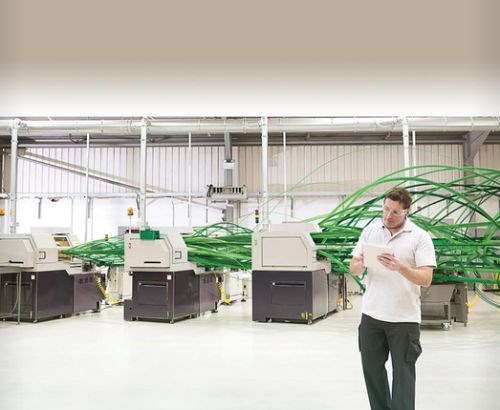The Microbial Menace
New metalcutting fluid formulations from Castrol battle microbial contamination, which compromises effectiveness and can lead to corrosion.

The green lines show the many points of cutting fluid contact where microbial growth can occur. Castrol’s new formulations address this problem.
According to Castrol, metalcutting fluids have always been vulnerable to microbial contamination. A poorly managed fluid with high levels of bacterial and fungal infection loses its effectiveness, and the contamination creates an acidic environment that causes emulsions to separate and lose their lubricating properties, potentially resulting in corrosion.
That’s why Castrol researchers have been focusing on the problems generated by traditional bacterial and fungal contamination controls, resulting in the development of metalcutting fluids that help stop microbial degradation: Hysol SL 35 XBB and Alusol SL 51 XBB. These products have been formulated with a long-lasting buffer that is more resistant to changes in acidity and inherently more resistant to bacterial growth. Learn more about these new formulations by reading this article in Production Machining. Also read about Minimum Quantity Lubrication (MQL) in another PM article.








.jpg;maxWidth=300;quality=90)



